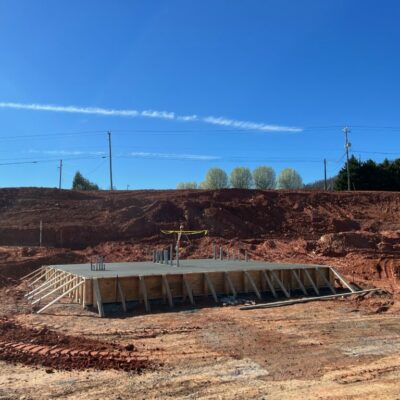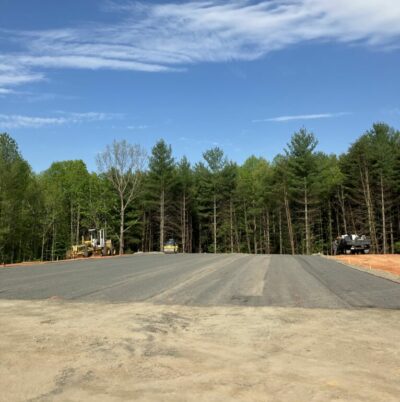Explore more about our services

Asphalt
Asphalt is a composite material used for the construction of driveways, roads, and various surfaces that require durability and resilience. Composed mainly of aggregates such as sand, gravel, or crushed stone bound together by a viscous binder known as bitumen, also known as “tack”. The unique properties of asphalt make it an ideal choice for applications where heavy loads and weather resistance are paramount. Its ability to withstand varying temperatures and resist deformation under stress contributes significantly to its widespread use.
Asphalt, often perceived as an environmentally detrimental material, actually presents several ecological benefits. Being highly recyclable, 100% of asphalt used in road construction can be reclaimed and reused. Recycled asphalt pavement (RAP) has become increasingly popular due to its potential for reducing waste and conserving resources. By reusing existing materials, we can minimize the extraction of virgin aggregates and limit the energy consumption associated with new material production. Its durability, recyclability, and environmental benefits make it an indispensable component of contemporary infrastructure development.
Milling
Asphalt milling is a critical process in road maintenance and rehabilitation, primarily aimed at extending the lifespan of asphalt pavements. This technique involves removing the top layer of asphalt from a pavement surface using specialized machinery known as a milling machine. The primary objectives of asphalt milling include surface restoration, improving skid resistance, and preparing the substrate for new overlay applications. By addressing surface imperfections such as ruts, cracks, and potholes, asphalt milling enhances both safety and ride quality for motorists.
There are many environmental benefits associated with asphalt milling. Reclaimed asphalt pavement (RAP) generated during this process can be reused in new asphalt mixtures, significantly reducing the demand for virgin materials. This practice not only conserves natural resources but also minimizes waste. In an era where sustainable practices are paramount, asphalt milling stands out as an eco-friendly solution.


Concrete
Concrete is a composite material widely used in construction, characterized by its durability and versatility. It is composed of aggregates such as sand, gravel, cement, and water. The hydraulic properties of cement allow it to harden through hydration when mixed with water, forming a matrix that encapsulates the aggregates. This unique combination results in a material capable of bearing substantial loads while exhibiting resistance to environmental degradation. The aesthetic applications of concrete cannot be overlooked. Architects increasingly utilize this material not only for its structural capabilities but also for its design flexibility. Through techniques such as staining and polishing, concrete can achieve various finishes that enhance both functionality and visual appeal in architectural projects.
Chip Seal / Tar & Gravel
Chip seal, also known as “Tar & Gravel”, is a method of pavement preservation. It combines asphalt and aggregate to enhance the durability and functionality of road surfaces. This technique involves applying a layer of liquid asphalt binder, (also known as “tack”, or tar), onto an existing or newly prepared pavement surface, followed by the immediate application of gravel. The surface is then rolled to maximize compaction of aggregate materials. The process is designed to create a sealed surface that can effectively protect underlying layers from moisture infiltration and oxidative damage. Chip seal serves as a cost-effective alternative to traditional resurfacing methods, offering extended service life for roads while minimizing the need for complete reconstruction.

